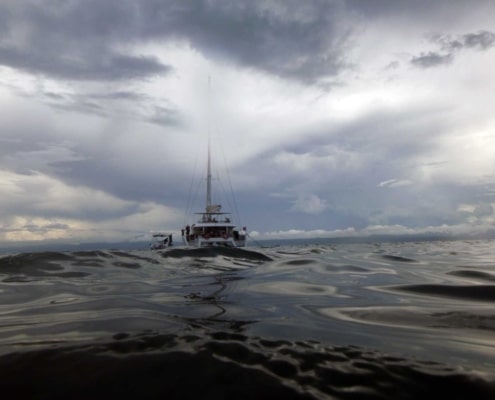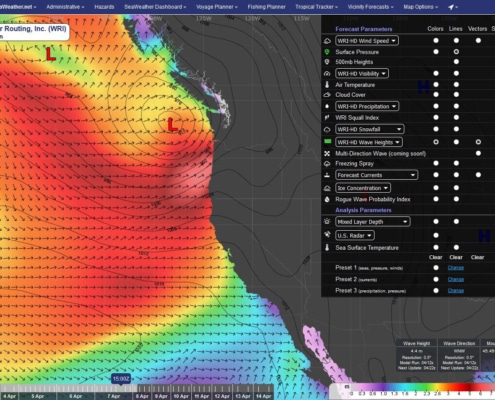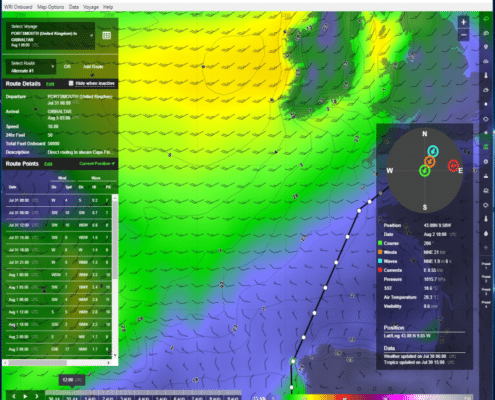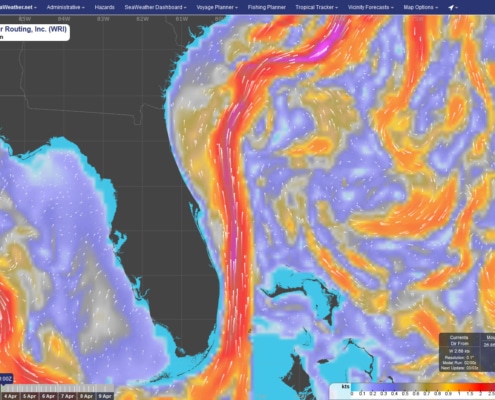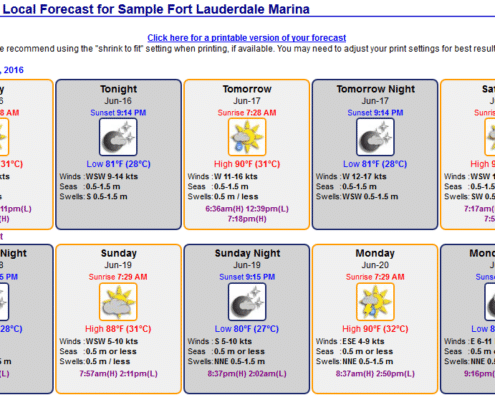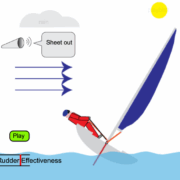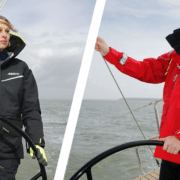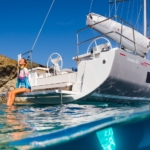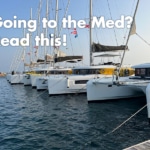How to use Weather Data to stay safe on the water
From Clear Skies to Stormy Seas – FREE+ Web Seminar on November 15, 2023
Overview
Join Captain Deb Marlor with Sailing and Boating LLC and Guest Speaker Alex Avalos, Senior Meteorologist and Operations Manager of WRI (Weather Routing, Inc) – for a FREE+ Webinar on how to use weather data to stay safe on the water. The weather webinar discusses a broad range of topics that help you become better prepared for weather by using multiple weather data sources.
Navigating the Weather – Essential Tips & Tools for Safety:
- Weather Basics
- Sources and why Multiple sources are better than one service
- How to work with a Weather Service
- No Go/ Go determination.
- Sneak Preview of SeaWeather.net
- Q & A
Details
FREE+ WEATHER WEBINAR!!
Date: Monday, November 15, 2023
Time: 8:00 p.m. – 9:30 p.m. (Eastern Time Zone)
Registration is required (event is free): https://sailingandboatingllc.com/webinar
Via Zoom Meeting
Key Presenter: Alex Avalos, Senior Meteorologist and Operations Manager with WRI (Weather Routing Inc)
Sponsored by Captain Deb Marlor of SailingandBoatingLLC.com
+BONUS All who attend the webinar will receive:
- One Complimentary Forecast and 1 month of SEAWEATHER.NET from WRI
- One Cruise Course from Sailing & Boating LLC
Attendees can also receive 30% off NauticEd’s Weather Course ($39 $27.30 after discount). If new to NauticEd, also receive a free Sailor’s Toolkit and 2 free courses. Not required, but recommended, for the Webinar.
Understanding the weather and how to use weather data is critical for a boater’s safety and enjoyment!
Weather data empowers boaters to make informed decisions about when to go out on the water, what routes to take, and how to adjust your plans based on current conditions. By staying updated on weather forecasts and real-time data, boaters can prioritize safety and reduce the risk of accidents or dangerous situations. Often the most important decision is whether or not to even leave the dock! Once on the water, your weather planning as well as adapting to changing conditions is not only critical for the safety of you and your crew, but also can enhance the enjoyment of boating for a day sail or extended voyage.
Some of what you need to consider when planning to go on the water:
- Storms and Extreme Conditions: Weather data provides information about approaching storms, hurricanes, strong winds, and other extreme weather conditions. This information allows boaters to make informed decisions about whether to venture out on the water or stay safely at the dock – helping boaters avoid potentially dangerous situations that could lead to accidents, capsizing, or damage to the boat.
- Wind and Wave Conditions: Boaters need to be aware of wind speed and direction as well as wave heights and patterns. Wind and wave data helps boaters plan their routes and adjust their speed accordingly. Strong winds and high waves can make navigation challenging, especially for smaller vessels. By knowing the current conditions, boaters can avoid areas with treacherous waves and find safer paths.
- Visibility and Fog: Weather data includes information about visibility and fog conditions. Limited visibility due to fog can make navigation hazardous, increasing the risk of collisions with other boats, objects, or land. Boaters can use this information to decide whether it’s safe to proceed or wait until visibility improves.
- Lightning and Thunderstorms: Thunderstorms can develop rapidly and pose a significant threat to boaters. Lightning is particularly dangerous because it can strike the mast, antennas, or other high structures on a boat. Weather data helps boaters track the development and movement of thunderstorms, enabling them to seek shelter or change their course to avoid these hazardous conditions.
- Temperature and Hypothermia: Knowing the temperature and wind chill factor is essential for boaters, especially those engaging in water activities. Cold can lead to hypothermia, which is a serious risk even in moderate weather conditions. Conversely, heat can be hazardous as well, especially if on the water for extended periods without sun protection. By understanding the temperature, boaters can take appropriate precautions such as wearing appropriate clothing or ensuring they have the necessary equipment for emergencies.
- Tides and Currents: Weather data often includes information about tides and currents. Boaters need this information to plan their journeys, especially in areas with significant tidal ranges. Understanding the timing and strength of tides and currents helps boaters navigate safely, avoiding shallow areas or areas prone to strong currents.

